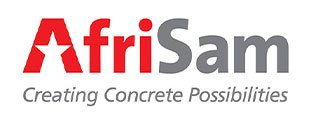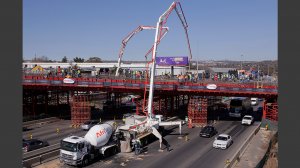South Africa’s civil structures are in dire need of improved performance and longevity, hence building materials company AfriSam’s emphasis on supplying quality products that “go beyond current requirements”.
Speaking to Engineering News, AfriSam regional product technical manager Nithia Pillay says this is because AfriSam “wants to be associated with quality products and address current challenges”.
Current domestic trends indicate that the country needs more robust structures and leveraging research and development (R&D) is key to producing and supplying quality products, he adds.
More robust structures will result in their being more resistant to aggressive environments and thus meet or exceed service life requirements.
South Africa’s infrastructure is exposed to both inland and coastal aggressive scenarios with inland structures mainly exposed to carbonation, while coastal structures are exposed to chloride ingress.
Although chloride ingress and carbonation are different aggressive processes, Pillay explains that both essentially result in the embedded reinforcing steel corroding.
Corrosion of the embedded reinforcing steel results in the cover concrete cracking and spalling, further accelerating the premature failure of the structure.
AfriSam designs its concrete mixes with these scenarios in mind to mitigate aggressive attacks, thereby extending the service life of concrete structures.
Unfortunately, Pillay laments that mitigation measures alone applied to mix designs do not make for robust structures.
“The placing, compacting and curing of concrete in addition to ensuring that reinforcing steel is located as per the engineer’s design by the contractor, plays an even more important role in producing structures that meet or exceed service life design.”
He adds that AfriSam “realises that concrete solutions go beyond just producing quality products, therefore we have included design aspects which address the above contractor responsibilities of placing, compaction and curing of concrete”.
All these factors are important when a contractor needs to produce a robust structure, he adds, noting that AfriSam’s philosophy has always been to “know each and every component” of its mix designs.
This involves weekly comprehensive testing of all material components that go into the company’s concrete designs, with AfriSam trending historical performance against current performance so that it can make informed decisions and ensure that final product quality is not compromised.
Standard and special ready-mix products are subjected to rigorous quality and process control tests, which are monitored daily, weekly and monthly to identify trends for individual products, the information of which is then used to make adjustments accordingly.
“AfriSam has its finger on the pulse in terms of how our products perform on an individual and component basis so that we can ensure that our customers are receiving the best- quality products,” Pillay says.
AfriSam’s invested approach to R&D enables the company to confidently produce concrete that enables century-long service life structures.
Pillay says that long-term testing of concrete in both coastal and inland environments is ongoing, and that it will contribute towards a computer model which will assist engineers in designing structures which have superior resistance to corrosive environments.
“The testing includes concrete samples containing various blends of extenders and aggregates which have been strategically placed within very extreme to mild environments. Durability index testing is conducted at pre-determined intervals to determine the effect these environments have on the concrete and potentially embedded reinforcing steel,” he explains, noting that all data being collated will be included in a computer model.
Further, the company’s collaborative and individual R&D “progressively moves AfriSam further ahead as a market leader”, notes Pillay.
Consolidating an understanding of individual material components – such as cement, cementitious extender and aggregates, as well as their interaction with other materials, provides AfriSam with the leverage to produce better products as a best-fit solution for customers, he adds.
A typical example of the above is the internal optimising of manufactured sand specifications so that the use of natural sands is reduced – natural sands are becoming scarce more inconsistent in quality.
Future Collaborations
AfriSam has conducted intensive laboratory and plant trials to evaluate various products and their influence on the rheology of concrete, which Pillay says assists customers with the ease of placing and compacting the concrete on site.
The company is also considering future collaboration with international experts regarding the recycling of waste or hazardous gases into concrete to improve its durability properties.
This enables the production of green buildings and structures, assisting customers with their environmental obligations, while also producing robust structures.
“There has been some work internationally that shows the recycling of some of these gases into concrete can actually improve concrete properties, such as strength and workability,” Pillay explains.
“AfriSam is the pioneer of producing highly extended concrete without compromising performance parameters, R&D in this area is extensive and incorporates various combinations of AfriSam sourced materials,” he adds.
AfriSam’s ECO range of concrete is derived from this work.
AfriSam is also researching the use of advanced temperature monitoring in concrete to establish the setting-time characteristics of concrete. In this regard, the company is involved in an ongoing test programme to establish how any change in cementitious chemistry relates to the setting time of concrete.
AfriSam’s technical reference guide contains volumes of information relating to cementitious, aggregate and readymix concrete products in addition to specification and technical guidance on material and product applications.
A soft copy is available for free download from the AfriSam website.







